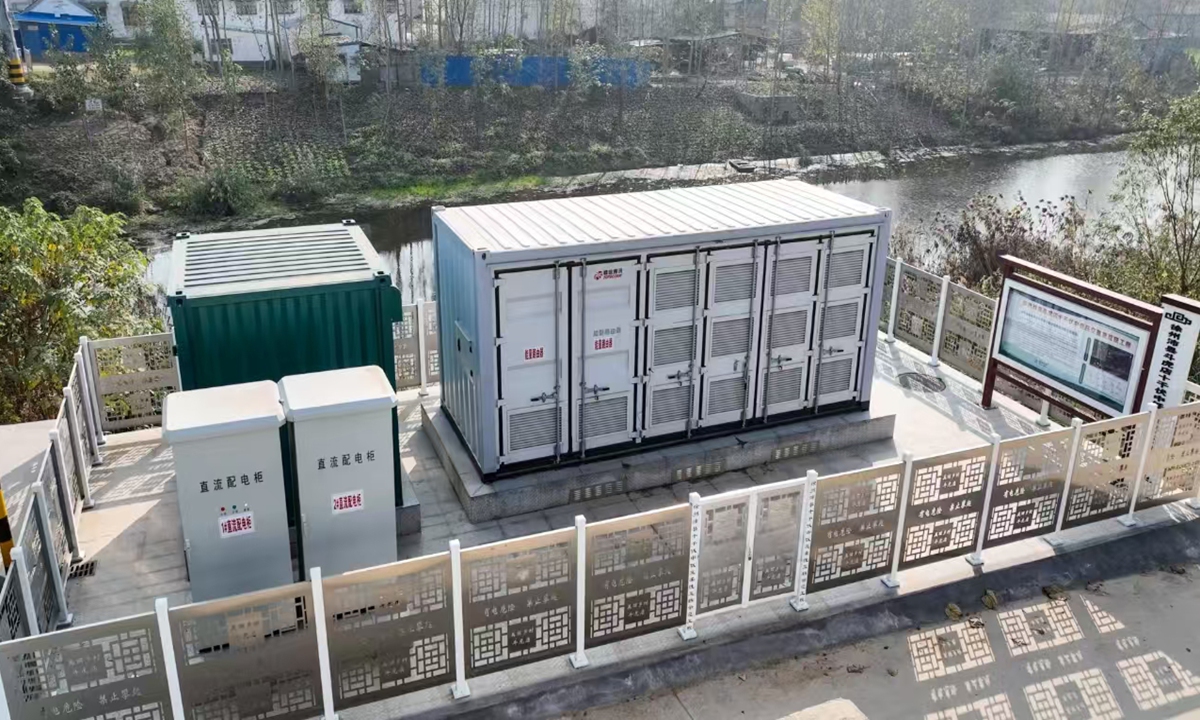
Photo: State Grid Peixian Power Supply Company
Recently, in Peixian county, Xuzhou, East China's Jiangsu Province, the first demonstration project of medium and low voltage AC/DC interconnection in the province was put into operation. This project constitutes a technological exploration aimed at enhancing the terminal consumption capacity of distributed photovoltaics.
In recent years, thanks to the promotion of rooftop photovoltaic access across the entire village, the development of distributed photovoltaics has shown a continuous growth trend. While the energy structure continues to grow, it also poses challenges to the reliable operation of regional distribution networks.
"If the electricity generated by photovoltaics is not consumed in a timely manner, it can easily cause transformer overload, low voltage reverse transmission to high voltage, and other situations, affecting the safe and reliable operation of the power grid," said Zhang Yulong, a sixth level staff member of the Equipment Management Department of State Grid Peixian Power Supply Company.
In order to improve the measures for the consumption of new energy and enhance the reliability of power supply, State Grid Peixian Power Supply Company is exploring the technical path of smart distribution network construction according to local conditions.
This project deploys AC/DC microgrid converter equipment on the low-voltage side of the substation, interconnecting multiple substation areas through DC busbars to achieve optimal power distribution between substations.
As early as 2021, the company tested and explored two low-voltage side energy mutual assistance technologies in Chenyoufang village, Zhangzhai town, achieving power supply balance.
Through the "energy router," the 10 kV line is interconnected with the DC system, and the low-voltage DC system can "cross" the transformer in the substation to directly transmit energy to the medium voltage side. At the same time, flexible DC energy mutual assistance between low voltage and low voltage, and medium voltage and low voltage is achieved, effectively avoiding transformer overload.
"Distributed photovoltaics are generally directly connected to the low-voltage side of the distribution network with weaker carrying capacity, just like many cars rushing into small urban roads," Zhang said.
"The interconnection project we have built is like a fast overpass, connecting multiple branches and transporting excess traffic to wider main lines to avoid road overload and traffic jams."
When the electricity generated by rooftop photovoltaics cannot be fully consumed locally, they are transported to other areas for consumption. Finally, the remaining electricity is directly transmitted across the substation transformer to the higher capacity "10 kV medium voltage side," effectively avoiding transformer overload and improving the quality of substation electricity.
At the same time, through flexible DC interconnection on the low-voltage side, in the event of a power outage or transformer failure on the upper 10 kV line in any substation, load transfer can be carried out by other substations, greatly improving the power supply reliability of interconnected substations.
"We will continue to promote this technological achievement, and at the same time, explore more technological paths tailored to local conditions by exploring the construction of distributed photovoltaic observable and measurable demonstration zones, 10 kV power flow controllers, and carrying out innovative projects for electricity hydrogen coupling," Zhang noted.
"We will continuously improve the flexible consumption capacity of the distribution network for distributed photovoltaics and better support the development of new energy," he added.
Global Times




